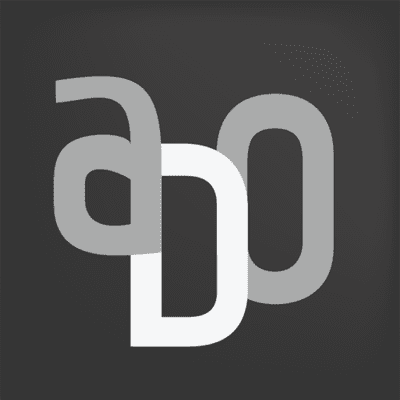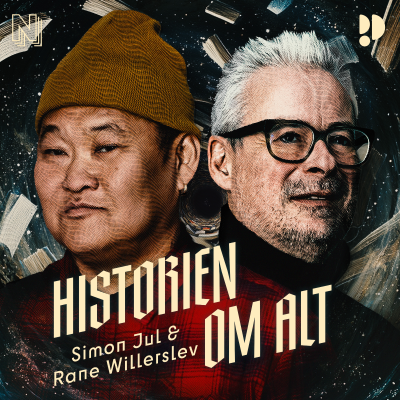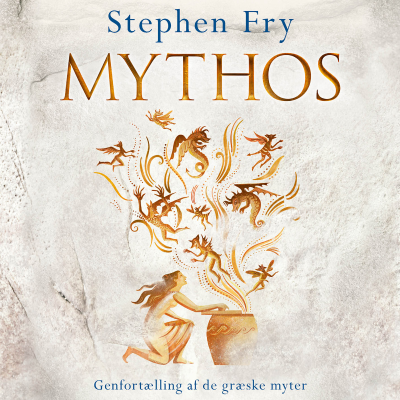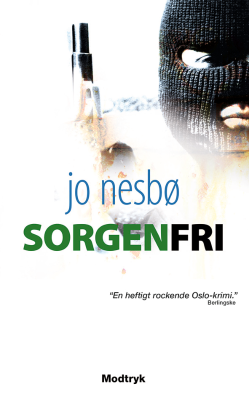
Arrested DevOps
Podcast af Matt Stratton, Trevor Hess, Jessica Kerr, and Bridget Kromhout
Begrænset tilbud
1 måned kun 9 kr.
Derefter 99 kr. / månedIngen binding.

Mere end 1 million lyttere
Du vil elske Podimo, og du er ikke alene
Bedømt til 4,7 stjerner i App Store
Læs mere Arrested DevOps
Arrested DevOps is the podcast that helps you achieve understanding, develop good practices, and operate your team and organization for maximum DevOps awesomeness.
Alle episoder
204 episoderSecurity: the one topic that’s guaranteed to turn any DevOps conversation into a mix of fear, eye rolls, and nervous laughter. In this episode of Arrested DevOps, Matty welcomes back Kat Cosgrove to talk about the “never not hot” world of security and why it’s always lurking just over your shoulder (like that one compliance auditor who swears they’re just “observing”). Kat and Matty cover: * Why vulnerabilities never seem to stop showing up in your containers (spoiler: they don’t). * How teams can respond without spiraling into full-blown panic. * The realities of securing Kubernetes and containerized environments (without pretending there’s a magic “easy button.”) * Why security culture matters as much as the tools you’re using. Along the way, expect the usual mix of snark, sarcasm, and the occasional tangent about how everything in tech eventually becomes a security problem. If you’ve ever patched the same vulnerability three times in a week, or found yourself yelling at a CVE like it’s a personal enemy, this one’s for you.
We’ve all been there: burning out on volatile tech jobs, tangled in impossible systems, and wondering what our work actually means. On this episode of Arrested DevOps, Matty Stratton sits down with Kat Morgan for a heartfelt, funny, and sharply observant conversation about AI: what it helps with, what it hurts, and how we navigate all of that as humans in tech. They dive deep into how large language models (LLMs) both assist and frustrate us, the ethics of working with machines trained on the labor of others, and why staying kind—to the robots and to ourselves—might be one of the most important practices we have. > “We actually have to respect our own presence enough to appreciate that what we put out in the world will also change ourselves.” – Kat Morgan TOPICS * Why strong opinions about AI often miss the nuance * Using LLMs to support neurodivergent workflows (executive function as a service!) * Treating agents like colleagues and the surprising benefits of that mindset * Code hygiene, documentation, and collaborating with AI in GitHub issues * Building private, local dev environments to reduce risk and improve trust * Ethical tensions: intellectual property, environmental impact, and the AI value chain * Why we should be polite to our agents—and what that says about how we treat people KEY TAKEAWAYS * AI isn’t magic, but it can be a helpful colleague. Kat shares how she uses LLMs to stay on task, avoid executive dysfunction, and manage complex projects with greater ease. * Good context design matters. When working with AI, things like encapsulated code, clean interfaces, and checklists aren’t just best practices. They’re vital for productive collaboration. * Skepticism is healthy. Kat reminds us that while AI can be useful, it also messes up. A lot. And without guardrails and critical thinking, it can become more of a liability than a partner. * Build humane systems. From privacy risks to climate concerns, this episode underscores that responsible AI use requires ethical intent, which starts with practitioners.
Openness plays a significant role in propelling DevOps and organizational processes forward. This is not to imply that everything must be open, but the default should be openness unless a valid reason indicates otherwise. Andrew Zigler, developer advocate at Mattermost, and Matty from Arrested DevOps recently shared insights on this subject. They discussed creating impactful developer advocates, managing community writing programs, and dealing with the challenges of open source communities. THE IMPORTANCE OF OPEN SOURCE IN COMMUNITIES Andrew emphasizes that the loudest and most contributory voices in open source projects are usually the paid internal staff. However, he champions setting up pathways in the community to validate the experience of all contributors and reward them with anything from thought leadership, platforms, or even swag. The key is to influence individuals at all levels of engagement and ensure that they feel they own part of what they are contributing. One of the challenges he identified is over-influencing which often stems from the fact that the paid staff are the ones driving the open source project vehicle. This imbalance usually drowns out the voices of other contributors, particularly those who may not have the luxury of dedicating as much time and energy to the project as the paid staff. Andrew suggests a solution: the company creating more developer advocates through the multiplier effect. This means ensuring that everyone across the board understands the importance of the open-source community and empowers them to contribute. The more developers contribute, the larger and more diversified the community becomes, leading to better outcomes and solutions. THE CRITICAL ROLE OF LEADERSHIP IN OPEN SOURCE COMMUNITIES Matty highlights how vital leadership is in these initiatives. By allocating resources, prioritizing open source community engagement, and maintaining a strategic focus, leaders can do much to foster a healthy open-source community. Successful leaders understand that engagement levels differ, so they create opportunities for different levels of contributors to partake and contribute to the community. To ensure the project remains harmonious and aligned with company goals, the leadership should give equal weight to both staff and contributors’ voices. In the end, everyone involved in the project is part of the community. ENGINEERING BLOGS: THE BALANCE OF OUTPUT The conversation took an interesting turn when they started discussing engineering blogs, a tricky subject for many organizations. Matty points out that these blogs have the tendency to publish sporadically, often dominated by lengthy droughts of content or a sudden overflow of posts. Such inconsistency happens when the contributors, mostly engineers, write when they can spare the time. Balancing this dynamic is crucial, and one suggested solution is to involve people whose primary job is creating content. They can collaborate with subject matter experts to create consistent, relevant content. CONCLUSION Operating under a default open environment for your projects does not mean that everything has to be open. Nevertheless, transparency and openness should be the norm unless necessary otherwise. By dealing with the occasional echo chamber and understanding that contributions will always ebb and flow, the community will thrive and keep moving forward. In line with the open source spirit, scaling advocacy is crucial in DevOps. It involves not only the individuals whose title is developer advocate but everyone within the company. By creating more advocates and amplifying community efforts, the DevOps movement continues seamlessly. LINKS * Matty’s blog post about SharePoint [https://www.mattstratton.com/tech-tips/configuring-sharepoint-2010-search-in-a-one-way-trust-scenario/] (including broken images!) * Community Pulse podcast [https://www.communitypulse.io/]
Read more of Chelsea Troy’s writing here! [https://chelseatroy.com/]
* Every ADO Cold Open Ever [https://share.descript.com/view/WkLfG7BM9vF] * “Episode 0” of ADO [https://www.youtube.com/watch?v=yyvac2Ml61g] * “Old Geeks Yell At Cloud” video [https://www.youtube.com/watch?v=bNfAAQUQ_54]

Bedømt til 4,7 stjerner i App Store
Begrænset tilbud
1 måned kun 9 kr.
Derefter 99 kr. / månedIngen binding.
Eksklusive podcasts
Uden reklamer
Gratis podcasts
Lydbøger
20 timer / måned

































